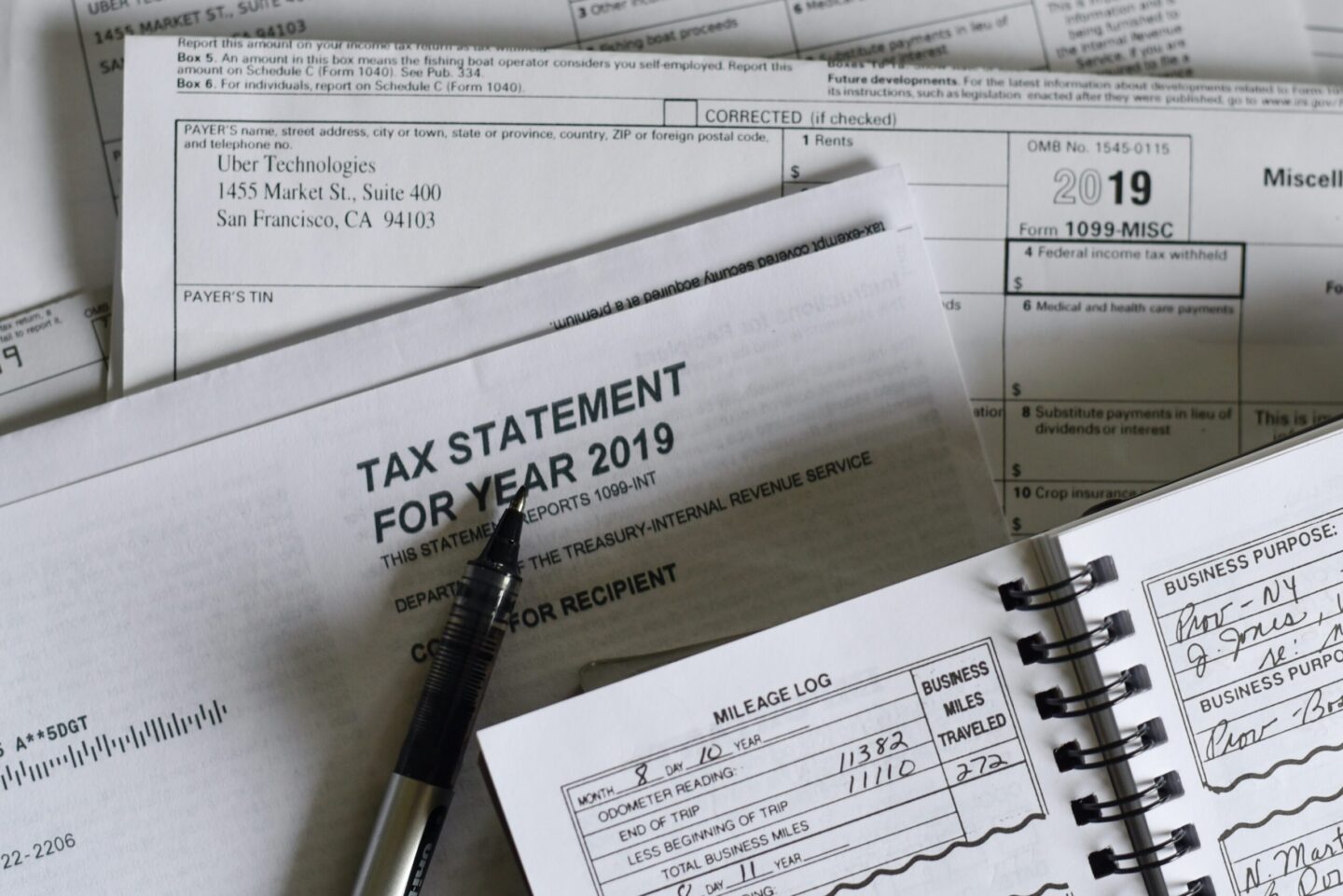Home>Finance>Why Do So Many People Continue To Use Payday Loans Despite The Financial Risk?


Finance
Why Do So Many People Continue To Use Payday Loans Despite The Financial Risk?
Modified: February 6, 2024
Discover why so many people still choose payday loans, despite the financial risk. Explore the complex dynamics of finance and decision-making in this insightful analysis.
(Many of the links in this article redirect to a specific reviewed product. Your purchase of these products through affiliate links helps to generate commission for LiveWell, at no extra cost. Learn more)
Table of Contents
- Introduction
- Understanding the payday loan industry
- Factors contributing to the continued use of payday loans
- Lack of access to traditional banking services
- Immediate financial needs
- Lack of financial literacy and education
- Convenience and accessibility of payday loans
- High interest rates and fees
- Psychological and emotional factors
- The cycle of debt
- Government regulations and industry reforms
- Alternative solutions and support
- Conclusion
Introduction
Payday loans have become a controversial and heavily debated topic in the world of personal finance. Despite their high interest rates and the potential financial risks they pose, a significant number of people continue to use payday loans to meet their immediate cash needs. This begs the question: why do so many people still rely on payday loans?
The payday loan industry has grown exponentially in recent years, fueled by the increased availability of online lending platforms and storefront locations. These loans are designed to provide quick and easy access to cash, with minimal credit checks and paperwork. While they may seem like a convenient solution, the reality is that payday loans often trap borrowers in a cycle of debt, making it difficult for them to break free.
In this article, we will explore the factors that contribute to the continued use of payday loans, despite the various financial risks involved. We will delve into the lack of access to traditional banking services, the immediate financial needs that people face, the lack of financial literacy and education, as well as the convenience and accessibility of payday loans. Additionally, we will examine the high interest rates and fees associated with these loans, as well as the psychological and emotional factors that can influence borrowing decisions.
Furthermore, we will discuss the cycle of debt that many payday loan borrowers find themselves in and the efforts being made by the government and industry to implement stricter regulations and reforms. Lastly, we will explore alternative solutions and support that individuals can turn to instead of relying on payday loans.
By gaining a deeper understanding of these factors, we can shed light on the complex reasons why so many people continue to use payday loans despite the financial risk. It is our hope that this knowledge will empower individuals to make more informed financial decisions and seek out the support they need to achieve greater financial stability and well-being.
Understanding the payday loan industry
The payday loan industry is a financial sector that specializes in providing short-term loans to individuals who need quick access to cash. These loans are typically for small amounts, usually ranging from $100 to $1,500, and are intended to be repaid in full within a short period, often by the borrower’s next payday.
Payday loans are known for their high interest rates and fees, making them a costly borrowing option. Lenders charge a fee for the loan, typically based on a percentage of the total amount borrowed. This fee, along with the principal amount, must be paid back in a lump sum within a specified timeframe, typically two weeks to a month.
One of the defining features of payday loans is the ease and speed with which borrowers can obtain funds. Traditional banks often have strict lending criteria and lengthy application processes, making it difficult for individuals with low credit scores or limited financial resources to access loans. Payday lenders, on the other hand, have minimal requirements and can often provide funds on the same day as the application.
Payday loans can be obtained through various channels, including online lending platforms and brick-and-mortar storefronts. Online lenders allow borrowers to apply and receive funds electronically, while storefront lenders require borrowers to visit their physical locations to complete the application process. Both options offer convenience and accessibility, attracting borrowers who need immediate cash.
While payday loans can be a lifeline for individuals facing unexpected financial emergencies, they come with significant drawbacks and risks. The high interest rates and fees associated with these loans can quickly accumulate, trapping borrowers in a cycle of debt. Additionally, the short repayment term can place a heavy burden on borrowers, especially those who are already struggling financially.
Understanding the inner workings of the payday loan industry is crucial in comprehending why individuals continue to use these loans despite their financial risks. By examining the factors that contribute to their popularity, we can gain insight into the complex dynamics at play and explore potential solutions to address the underlying issues.
Factors contributing to the continued use of payday loans
Despite the financial risks associated with payday loans, there are several factors that contribute to their continued use by a significant number of individuals. These factors can vary from a lack of access to traditional banking services to the immediate financial needs that people face. Let’s explore some of the key factors driving the ongoing reliance on payday loans:
Lack of access to traditional banking services: Many individuals who rely on payday loans do not have access to traditional banking services. This could be due to a poor credit history, lack of collateral, or residency status. Without other options available, payday loans become a convenient and accessible source of financial assistance.
Immediate financial needs: People often turn to payday loans when faced with urgent financial needs. Whether it’s an unexpected medical bill, car repair, or utility payment, payday loans offer quick access to cash without the lengthy approval process of traditional loans. When faced with limited alternatives, borrowers prioritize their immediate needs over the long-term financial impact.
Lack of financial literacy and education: Many individuals who use payday loans are unaware of alternative financial resources or may lack the financial literacy necessary to make informed decisions. Without a solid understanding of interest rates, fees, and repayment terms, borrowers may underestimate the true cost of payday loans and the potential consequences of taking on excessive debt.
Convenience and accessibility of payday loans: Payday loans are conveniently available through online platforms and physical stores, making them easily accessible to individuals in need of quick cash. The streamlined application process and minimal requirements make payday loans an attractive option for those seeking immediate financial relief.
High interest rates and fees: Although payday loans are intended to be short-term solutions, their high interest rates and fees can result in borrowers paying back significantly more than the original loan amount. However, some borrowers may prioritize addressing their immediate financial needs over the long-term financial implications.
Psychological and emotional factors: Payday loans can serve as a temporary relief from financial stress and anxiety. The immediate access to cash can provide a sense of control and security, even if it comes at a high cost. For individuals facing financial hardships, the ability to address pressing issues in the short term can outweigh the long-term consequences.
These factors, combined with other individual circumstances and societal factors, contribute to the continued use of payday loans. It is important to recognize these underlying reasons in order to develop effective solutions and support systems that address the financial needs of individuals without subjecting them to high-interest debt and perpetual cycles of borrowing.
Lack of access to traditional banking services
One of the key factors contributing to the continued use of payday loans is the lack of access to traditional banking services. Many individuals who rely on payday loans find themselves excluded from the mainstream banking system for various reasons. This lack of access leaves them with limited alternatives to meet their financial needs.
There are several reasons why individuals may face barriers to traditional banking services:
Poor credit history: Banks and credit unions typically require a good credit history as part of their lending criteria. However, individuals with past financial difficulties, such as a history of late payments, defaults, or bankruptcy, may have difficulty securing traditional loans. As a result, their only option may be payday loans, which have more lenient credit requirements.
Lack of collateral: Traditional lenders often require collateral to secure a loan. This can include assets such as real estate, vehicles, or other valuable property. Those who do not have sufficient collateral to offer may find it challenging to obtain a loan from a traditional banking institution. Payday loans, on the other hand, do not typically require collateral, making them more accessible to borrowers without valuable assets.
Residency status: Non-citizens or individuals without permanent residency may encounter difficulties accessing traditional banking services. Banks often have strict identification and documentation requirements, which can exclude those without the necessary paperwork. As a result, individuals without legal residency status may turn to payday loans as a means of obtaining quick cash.
When individuals cannot access traditional banking services, they often resort to payday loans as an alternative source of funds. Payday lenders have minimal requirements and are not as concerned with credit history or collateral. This makes payday loans an attractive option for those who find themselves outside of the traditional banking system.
It is important to note that the lack of access to traditional banking services perpetuates a cycle of financial exclusion. Without access to basic banking services, individuals also miss out on other financial opportunities, such as savings accounts, affordable credit options, and financial education programs. This further limits their ability to build credit, establish financial stability, and improve their overall financial well-being.
Addressing the issue of lack of access to traditional banking services is crucial in reducing dependence on payday loans. Efforts should be made to improve financial inclusion, such as promoting alternative banking options like community development financial institutions (CDFIs), credit unions, and microfinance organizations. By expanding access to these services and providing support for individuals who are currently excluded, we can help break the cycle of reliance on high-cost payday loans.
Immediate financial needs
Another significant factor contributing to the continued use of payday loans is the pressing and immediate financial needs that individuals often face. Life is unpredictable, and unexpected expenses can arise at any time, leaving people in urgent need of cash. In such situations, payday loans offer a quick solution to address these immediate financial needs.
It is not uncommon for individuals to encounter unexpected expenses, such as medical bills, car repairs, or home repairs, that require immediate attention and financial resources. Traditional bank loans tend to have lengthy approval processes, making them impractical for addressing these time-sensitive needs. Payday loans, on the other hand, provide a faster and more accessible option for borrowers.
Payday loans are designed to provide immediate funds to borrowers, often within the same day of the application. The application process is relatively simple and requires minimal documentation, making it efficient for those in need of quick cash. The convenience and speed of obtaining payday loans make them an attractive choice for individuals facing urgent financial situations.
Furthermore, payday loans are not restricted in their usage, and borrowers have the freedom to allocate the funds as they see fit. This flexibility allows individuals to address a wide range of immediate financial needs, whether it is paying rent, covering utility bills, or purchasing essential items.
However, the urgency of these financial needs can cloud judgment and lead individuals to overlook the high cost associated with payday loans. The focus on immediate relief often overshadows the long-term consequences of borrowing at exorbitant interest rates and fees. Borrowers prioritize addressing the immediate financial crisis over the potential accumulation of debt and the resulting financial strain.
To address the reliance on payday loans for immediate financial needs, it is crucial to explore alternative options that provide quick access to funds without the high costs. Building emergency savings, seeking assistance from non-profit organizations, or exploring affordable credit options like low-interest personal loans or credit unions can help individuals navigate unexpected expenses without falling into the trap of payday loan debt.
Furthermore, improving financial literacy and education is vital to help individuals better understand their options and make informed decisions when faced with urgent financial needs. Empowering individuals with the knowledge to navigate their financial situations can reduce the need for payday loans and promote healthier financial habits.
By addressing the immediate financial needs of individuals through alternative solutions and promoting financial education, we can mitigate the reliance on payday loans and create a more sustainable and financially stable future.
Lack of financial literacy and education
A lack of financial literacy and education is a significant contributing factor to the continued use of payday loans. Many individuals who find themselves in financial distress may not have the necessary knowledge and understanding of personal finance to make informed decisions about their borrowing options.
Financial literacy encompasses the knowledge and skills required to make informed financial decisions, including understanding interest rates, fees, repayment terms, and the potential long-term consequences of borrowing. Unfortunately, many individuals, especially those from low-income backgrounds or marginalized communities, have limited access to financial education and resources.
Without the necessary financial literacy, individuals may not fully comprehend the true cost of payday loans and the potential financial risks they pose. They may not be aware of alternative options available to them or the importance of establishing a savings habit to navigate financial emergencies. This lack of knowledge can lead to poor financial decision-making and a reliance on payday loans as a quick fix.
Additionally, the complex and often confusing terms and conditions associated with payday loans can further contribute to the reliance on these loans. Borrowers may struggle to understand the implications of their borrowing decisions, inadvertently falling into a cycle of debt and financial hardship.
Addressing the lack of financial literacy and education is crucial in reducing the dependence on high-cost borrowing options like payday loans. Financial education programs and resources should be made more accessible, particularly to vulnerable populations facing financial hardship.
Community organizations, schools, and financial institutions can play a crucial role in providing financial literacy workshops, seminars, and resources to empower individuals with the knowledge and skills needed to make informed financial decisions. These initiatives should focus on topics such as budgeting, saving, understanding credit, and evaluating borrowing options. By improving financial literacy, individuals are better equipped to evaluate the true costs and risks associated with payday loans and make more informed decisions about their financial well-being.
In addition to financial education, it is crucial to advocate for transparency and better regulation within the payday loan industry. Clear and concise information about interest rates, fees, and repayment terms should be provided to borrowers in a way that is understandable and accessible. This transparency can help individuals make more informed choices and avoid falling into cycles of debt.
By addressing the lack of financial literacy and education, we can empower individuals to make responsible financial decisions and reduce their reliance on payday loans. Investing in financial education initiatives and promoting transparency within the lending industry are essential steps toward building a financially literate society.
Convenience and accessibility of payday loans
One of the key factors contributing to the continued use of payday loans is the convenience and accessibility they offer to borrowers. Payday loans are designed to provide quick and easy access to cash, making them a convenient solution for individuals who need immediate funds.
Unlike traditional bank loans that often involve lengthy application processes and strict eligibility criteria, payday loans have minimal requirements and can be obtained relatively quickly. Borrowers can apply for payday loans online or visit storefront locations, providing them with a range of options to access funds.
The streamlined application process for payday loans typically requires minimal documentation, such as proof of identification, proof of income, and a bank account. This simplicity allows borrowers to complete the application quickly and obtain approval within minutes or hours, providing them with the funds they need in a timely manner.
The accessibility of payday loans is particularly appealing to individuals who may not qualify for traditional bank loans due to poor credit history or lack of collateral. Payday lenders are known for their lenient credit requirements, which opens up the possibility of borrowing for those with limited financial options.
Furthermore, payday loans are not tied to specific purposes or expenditure. Borrowers have the freedom to allocate the funds as they see fit, whether it is for utility bills, rent, groceries, or other immediate expenses. This flexibility allows individuals to address pressing financial needs without the restrictions often imposed by traditional loans.
However, the convenience and accessibility of payday loans come at a cost. These loans typically carry high interest rates and fees, resulting in a significant financial burden for borrowers. The ease of obtaining payday loans can also lead to repetitive borrowing, as individuals may find themselves relying on these loans to cover recurring expenses and falling into a cycle of debt.
To reduce the reliance on payday loans, it is important to explore alternative options that provide convenience and accessibility without the high costs. This can include promoting the availability of affordable credit options like microfinance loans, low-interest personal loans, or credit union products. Additionally, improving access to traditional banking services and financial education can empower individuals to make more informed decisions about their borrowing options and manage their finances more effectively.
By finding a balance between convenience, accessibility, and affordability, we can help individuals navigate their financial needs without resorting to high-cost payday loans. It is essential to prioritize the financial well-being of borrowers and provide them with the resources they need to make sustainable and responsible borrowing choices.
High interest rates and fees
One of the significant drawbacks of payday loans and a key factor contributing to their continued use is the high interest rates and fees associated with these loans. Payday lenders charge significantly higher interest rates and fees compared to traditional loans, making them a costly borrowing option for individuals in need of quick cash.
The high interest rates on payday loans can range from 300% to 400% or even higher, depending on the lender and local regulations. These rates can quickly accumulate, especially for borrowers who are unable to repay the loan in full by the agreed-upon due date. The longer the loan remains unpaid, the more interest builds up, resulting in a cycle of debt where borrowers face increasing financial burdens.
In addition to high interest rates, payday lenders often impose fees on top of the loan amount. These fees can include origination fees, processing fees, and late payment fees. Combined with the interest charges, the total cost of borrowing can be considerably higher than the initial loan amount.
The high interest rates and fees of payday loans can have severe implications for borrowers’ financial well-being. Individuals already facing financial difficulties may find it challenging to repay the loan in full on the designated due date, leading to extensions or rollovers. These extensions often come with additional fees and interest charges and can perpetuate a cycle of debt, making it even more challenging for borrowers to escape the payday loan trap.
It is important to note that the high interest rates and fees of payday loans primarily serve to protect lenders from the increased risk associated with these short-term, unsecured loans. Lenders argue that the high rates are necessary to compensate for the high default rates and operational costs. However, it is important to consider the impact of these rates on borrowers, particularly those already facing financial instability.
To address the issue of high interest rates and fees, there have been calls for increased regulation of the payday loan industry. Some jurisdictions have implemented restrictions on interest rates and fees, aiming to protect borrowers from excessive charges. These regulatory measures seek to strike a balance between providing access to credit for individuals in need while ensuring fair and affordable loan terms.
Furthermore, promoting financial literacy and education can empower individuals to make informed decisions about borrowing and understand the true costs associated with payday loans. Increased awareness about alternative, lower-cost borrowing options can also help individuals avoid the high interest rates and fees of payday loans.
By addressing the issue of high interest rates and fees, we can protect vulnerable borrowers from falling into financial hardship and promote a more fair and equitable lending environment.
Psychological and emotional factors
Psychological and emotional factors play a significant role in the continued use of payday loans by individuals, despite the high costs and potential financial risks. The immediate access to cash and the sense of relief that payday loans provide can be appealing to borrowers who are facing financial stress and uncertainty.
Financial difficulties can cause significant psychological and emotional distress. The pressure of unpaid bills, mounting debt, and the fear of not being able to meet basic needs can take a toll on mental well-being. In these challenging circumstances, payday loans may offer a temporary solution to alleviate financial stress and anxiety.
The quick and easy access to funds through payday loans can provide a sense of control and security in the midst of financial turmoil. Borrowers may feel a temporary sense of relief and a reduction in their financial worries, despite the high interest rates and fees associated with these loans.
Additionally, the availability of payday loans without the need for a credit check or collateral can be appealing to individuals who feel ashamed or embarrassed about their financial situation. These loans offer a discreet way to obtain cash, as payday lenders typically do not report to credit bureaus. Borrowers may feel a sense of anonymity and avoid potential judgment from friends, family, or financial institutions.
Furthermore, individuals may turn to payday loans due to a lack of viable alternatives. They may perceive payday loans as the only option available to them in times of financial crisis, disregarding the potential long-term consequences. In the face of limited choices, the immediate relief provided by payday loans can outweigh the potential negative impact on their future financial well-being.
It is essential to recognize the psychological and emotional factors that influence borrowing decisions and address them with holistic support services. Simply focusing on the financial aspects without considering the emotional needs may not lead to sustainable solutions.
Promoting financial well-being involves not only offering alternative lending options but also providing resources for financial counseling, mental health support, and stress management. These services can help individuals navigate their financial challenges more effectively and develop healthier coping mechanisms.
Moreover, raising awareness about the potential psychological and emotional impact of payday loans is crucial. By providing financial education and empowerment, individuals can gain a better understanding of the long-term consequences of their borrowing decisions and make more informed choices.
By addressing the psychological and emotional factors that contribute to the continued use of payday loans, we can provide individuals with the support they need to make financially healthier decisions and improve their overall well-being.
The cycle of debt
One of the most concerning aspects of payday loans is the cycle of debt that many borrowers find themselves trapped in. The high-interest rates and short repayment terms often make it difficult for individuals to fully repay their loans on time, leading to a cycle of borrowing and indebtedness.
As borrowers struggle to repay the loan in full, they may opt to extend the loan by paying a fee or taking out a new loan to cover the outstanding amount. This can result in a pattern of ongoing borrowing to cover previous debts, leading to a cycle of debt that becomes increasingly difficult to break free from.
The cycle of debt is perpetuated by several factors:
Renewal and rollover: Payday lenders often offer the option to renew or rollover the loan, allowing borrowers to extend the repayment period by paying an additional fee. While this may provide temporary relief, it increases the overall cost of the loan and prolongs the borrower’s debt obligations.
Insufficient repayment capacity: The short repayment term of payday loans, typically ranging from two weeks to a month, can be challenging for borrowers already facing financial difficulties. They may struggle to come up with the funds to repay the loan in full, resulting in partial payments or the need for further borrowing to meet their immediate financial obligations.
Multiple borrowing: Borrowers who are unable to repay their initial payday loan may turn to other lenders for additional loans to cover their existing debt. This can lead to a dangerous cycle of borrowing from multiple sources, exacerbating the financial burden and increasing the likelihood of default.
Continuous interest and fees: The high interest rates and fees associated with payday loans accumulate rapidly, adding to the financial burden of borrowers. As interest and fees continue to accrue with each renewal or rollover, the overall cost of the loan steadily increases, making it even more challenging to escape the cycle of debt.
The cycle of debt associated with payday loans can have severe consequences on individuals’ financial well-being. It can lead to financial instability, increased stress and anxiety, and a negative impact on credit scores, making it even harder to access affordable credit in the future.
Breaking the cycle of debt requires proactive measures. Governments and regulatory bodies have implemented initiatives to limit rollovers and renewals, ensuring that borrowers are not trapped in a never-ending cycle of borrowing. Stricter regulations and consumer protections aim to promote responsible lending practices and protect vulnerable individuals from falling deeper into debt.
Financial education and counseling also play a crucial role in helping borrowers break free from the cycle of debt. Providing individuals with the knowledge and skills to manage their finances effectively, negotiate repayment plans, and explore alternative sources of credit can empower them to make more informed decisions and escape the payday loan cycle.
By addressing the factors contributing to the cycle of debt and implementing comprehensive support systems, we can help individuals regain financial stability, break free from the burdensome cycle of payday loans, and move towards a brighter financial future.
Government regulations and industry reforms
Government regulations and industry reforms play a crucial role in addressing the issues surrounding payday loans and protecting consumers from the potential pitfalls of high-cost borrowing. These measures aim to create a more transparent and fair lending environment, reduce the risk of predatory practices, and promote responsible lending practices.
Regulators recognize the need to strike a balance between allowing access to credit for those in need and preventing borrowers from falling into cycles of debt. Some of the key government regulations and industry reforms aimed at addressing the concerns associated with payday loans include:
Interest rate caps: Many jurisdictions have implemented interest rate caps to limit the amount of interest lenders can charge on payday loans. These caps aim to protect borrowers from excessive interest rates that can quickly accumulate, reducing the risk of borrowers falling into a cycle of unmanageable debt.
Fee restrictions: Regulations may also impose limits on the fees charged by payday lenders. This includes capping origination fees, processing fees, and late payment fees, ensuring that borrowers are not burdened with excessive additional costs when borrowing from payday lenders.
Limitations on rollovers: To prevent borrowers from becoming trapped in a cycle of debt, regulations may restrict or limit the number of rollovers or renewals allowed on payday loans. This ensures that borrowers are not continually extending their loans, incurring additional fees and interest charges, without making substantial progress towards repaying the principal amount.
Borrower protections: Governments may also introduce measures to enhance borrower protections, such as requiring lenders to provide clear and concise information about the costs and terms of the loan, the consequences of non-payment, and the availability of alternative financial resources. These requirements aim to ensure that borrowers are fully informed and able to make educated decisions when borrowing.
While these government regulations and industry reforms are critical steps in protecting consumers from unfair and predatory lending practices, there is still room for improvement. Ongoing monitoring, evaluation, and adjustment of regulations are necessary to ensure their effectiveness and adapt to the changing landscape of the payday loan industry.
Moreover, industry collaboration and self-regulation can contribute to improving lending practices. Responsible lenders can implement internal policies to promote ethical and transparent lending, prioritize affordability assessments, and provide resources and support for borrowers in financial hardship.
Additionally, financial education initiatives that are developed in partnership with government agencies can play a vital role in empowering consumers. These programs can provide individuals with the knowledge and skills to navigate their financial circumstances, make informed borrowing decisions, and seek out alternative solutions when facing immediate financial needs.
By combining government regulations, industry reforms, and consumer education efforts, we can work towards a financial landscape where borrowers are protected, lenders operate responsibly, and individuals have the tools to make informed financial decisions that promote their long-term financial well-being.
Alternative solutions and support
While payday loans may appear as quick solutions to immediate financial needs, it is important to explore alternative options that provide more sustainable and affordable solutions. Alternative solutions and support systems can help individuals break free from the cycle of payday loan dependence and achieve greater financial well-being. Here are some alternatives to consider:
Emergency savings: Building an emergency savings fund can provide a crucial safety net during unexpected financial hardships. By setting aside a portion of income regularly, individuals can gradually accumulate funds to address unforeseen expenses without resorting to high-cost borrowing.
Nonprofit organizations: Various nonprofit organizations offer financial assistance, grants, or interest-free loans to individuals in need. These organizations often provide support with essential expenses, such as rent, utilities, or medical bills, providing an alternative to payday loans.
Credit union loans: Credit unions are member-owned financial institutions that offer affordable loan options to their members. They typically provide personal loans with lower interest rates and more favorable terms compared to traditional banks, making them a viable alternative for those seeking affordable credit.
Community development financial institutions (CDFIs): CDFIs are financial institutions that serve underserved communities by offering affordable financial products and services. They provide access to credit, small business loans, and other financial support tailored to the needs of community members.
Negotiating with creditors: In times of financial hardship, individuals can reach out to their creditors to negotiate modified repayment plans or request temporary relief. Many creditors are willing to work with borrowers to find alternative arrangements that are more manageable for their financial situations.
Financial counseling and education: Seeking guidance from financial counselors or attending financial education programs can provide valuable insights and strategies for managing money, budgeting effectively, and making informed financial decisions. These resources can help individuals develop strategies to overcome financial challenges and break free from the cycle of payday loan dependency.
Employer-sponsored programs: Some employers offer financial wellness programs or employee loans as part of their benefits package. These programs provide employees with access to financial education, low-interest loans, or emergency funds, reducing the need for payday loans during times of financial hardship.
It is crucial to also address the root causes of financial instability by advocating for policies that promote fair wages, affordable housing, and access to healthcare. By addressing income inequality and systemic barriers, individuals can build a more solid foundation for their financial well-being.
Utilizing these alternative solutions and support systems can help individuals overcome immediate financial challenges and reduce their reliance on high-cost borrowing options like payday loans. By providing individuals with viable alternatives and empowering them with the knowledge and resources needed for better financial decision-making, we can work towards a more financially inclusive society.
Conclusion
Payday loans continue to be a popular choice for individuals in need of immediate cash, despite their high interest rates and potential financial risks. The factors contributing to their continued use are multi-faceted, ranging from a lack of access to traditional banking services and immediate financial needs to a lack of financial literacy and convenience of payday loans. Psychological and emotional factors also play a significant role in borrowers’ decision-making process.
Addressing the issue of payday loan reliance requires a comprehensive approach that includes government regulations, industry reforms, and increased financial education. Stricter regulations can help protect consumers from predatory lending practices, while industry reforms can promote responsible lending and transparency. Financial education and support services can empower individuals to make informed decisions, explore alternatives, and develop healthier financial habits.
Alternative solutions, such as emergency savings, nonprofit organizations, credit union loans, and financial counseling, provide sustainable options for individuals facing financial emergencies. By utilizing these alternatives and seeking support, individuals can break free from the cycle of debt and work towards greater financial stability.
In conclusion, while payday loans may provide temporary relief, they come at a high cost and can perpetuate a cycle of debt. It is crucial to acknowledge the underlying factors that contribute to their continued use and implement measures to promote financial inclusion, education, and alternative solutions. By doing so, we can help individuals make more informed financial decisions, reduce their reliance on payday loans, and pave the way for a healthier and more financially secure future.














